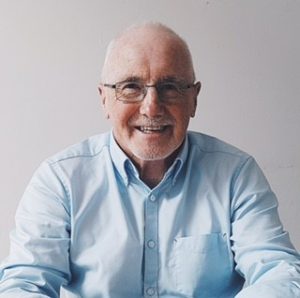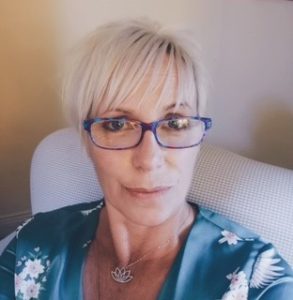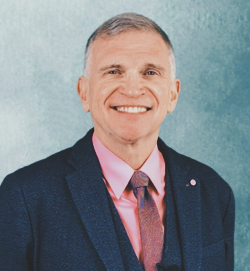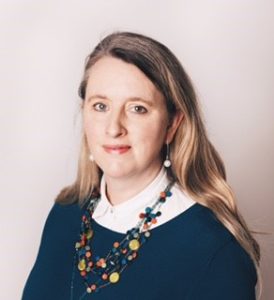Ireland has three National Research Ethics Committees (NRECs) in the areas of clinical trials and medical devices. Each NREC comprises volunteer members who give their time to help pave the way for new treatment options and medical innovations for Irish patients who need them most in the areas.
Committee members come from all walks of life. They can be healthcare or legal professionals, clinical trial statisticians or scientific experts, or public representatives who provide the voice of patients, carers and the public ensuring that people are at the heart of what we do. Despite having different roles and experiences, all members have one shared goal; to ensure health research is ethical and fair.
The existing three NRECs were first formed in May 2021 following a public call for expressions of interest to join them. They consist of two committees in the area of clinical trials, and one in medical devices, that meet monthly to review the ethics underpinning research proposals in these key areas of health research. Before their establishment, the concept of a national approach to research ethics review first became a reality back in April 2020, when the very first committee, known as NREC COVID-19 was formed. Over its four-month tenure from April to August 2020, the committee worked to expedite the ethics review of health research, and contribute to global efforts to fight the virus.
In this article, four members from across our current committees in the areas of clinical trials and medical devices share their motivation for joining, and why they believe their work makes a difference to health research.
“The hope research can offer a patient is hard to quantify…”
Billy McCann, public representative on the National Research Ethics Committee for Medical Devices.
I never considered myself to be a patient advocate and I’m something of an accidental tourist when it comes to medical research. Over the years I’ve had a few medical issues and from there I became involved with different organisations that represent patients interests in those areas.
“What would happen if my cancer came back?”
Back in 2015 I was diagnosed with Lymphoma. I remember asking my consultant what would happen if my cancer came back and he said everything would be different by then because of the pace of research and new treatments available. The hope research can offer a patient is hard to quantify and is often overlooked.
From this point on there came a degree of self-interest in sharing the patient perspective – and, through working with patient support programmes I began learning a great deal about the issues involved in living with different conditions. Since 2018 I’ve been a member of the National Biobank Working Group that brings together data protection officers, university research centres and patient groups to inform its work from a non-medical perspective. Through this group I met with researchers and was impressed by their care and dedication to scientific advancement.
Sharing how ‘the average’ patient feels
Now that we have national research ethics committees, it means we can standardise how research applications are reviewed from an ethical perspective. This is good for both researchers and research participants, who are comforted knowing that an ethics committee has reviewed the project they are being asked to take part in.
My role is to review applications and represent the voice of patients, sharing how ‘the average’ patient feels, as well as ensuring that participants are provided with as much clear information as possible. When patients are asked to take part in research, they are going through a stressful time in their lives, so from an ethics point of view it’s good to have non-medical representatives review the language being used and check that the documentation isn’t more technical than it needs to be. I really enjoy contributing to medical research and I encourage anyone who is even mildly interested to become involved.
“Being part of the journey to develop the highest quality approval process for research.”
Mandy Daly, public representative on the National Ethics Committee for Clinical Trials.
The events of October 8, 2006, altered the trajectory of my typical 30-something suburban life forever. Unbeknown to me, my daughter’s premature birth would ignite a passion and determination that would see me spend the next 15 years navigating previously unchartered waters as a clinical trial participant, patient advocate, founder of the Irish Neonatal Health Alliance, educator, advisor and embedded patient researcher.
“My daughter owes her life to research.”
My daughter owes her life to research inspired by the death of President John F. Kennedy’s son in 1963, which led researchers to discover that premature babies’ lungs lack a substance called surfactant, preventing the lung sacs from collapsing once in contact with air. This discovery spearheaded research that saved the lives of millions of premature babies. My daughter, Amelia, born 15 weeks early, was one of those babies. She was administered life-saving surfactant within minutes of being born and coincidently participated in an unrelated clinical trial within 24 hours of her birth.
When the National Office issued their public call for expressions of interest to join the committee, I saw it as not only an opportunity to share my lived experience and work in the neonatal and pediatric space, but also as a way to raise the public’s understanding of the importance of sound research ethics and contribute to being part of the journey to develop, standardise and deliver the highest quality approval process for research.
“The committee members are like the pieces in a jigsaw puzzle.”
The members of the committee come from a diverse range of backgrounds, lived experiences and professions, and each person’s view is heard and valued. The committee members are like the pieces in a jigsaw puzzle – no one member is an expert in all of the topics presented to the committee for approval, but the collective knowledge of the committee provides the foundation for a process that ensures that research studies are meaningful and conducted appropriately. And above all, that the wellbeing and interests of trial participants remain the primary drivers for medical research. In the past, research and the processes behind it have operated independently of the public. Today, it’s our job to embed public, patient and carer involvement (PPI) into research structures and processes from the outset.
“Ethical governance is a key component in reassuring the public that medical research will be scrutinised in relation to the public good.”
Professor John Wells, member of the National Research Ethics Committee for Clinical Trials.
My initial interest in medical research ethics was sparked as an undergraduate history student at Manchester University in the early ‘80s when I first came across the history of the abuse of human and patient rights through the T4 programme in Nazi Germany. Later, in the early ‘90s, I taught ethics to undergraduate and postgraduate student nurses when I was a lecturer at King’s College London.
Understanding the consequences of research
From then on, I’ve been a passionate advocate of the need for medical and other health care researchers not only to be aware that all research involving people requires one to behave ethically, but that researchers also need to be conscious of the importance of understanding the consequences of their research in relation to societal impacts. Particularly, in relation to the welfare of individuals and vulnerable groups, such as people with intellectual disabilities, refugees, and the socially and economically marginalised.
“Maintaining public confidence involves a willingness to be transparent.”
The COVID-19 health crisis has shown us that maintaining public confidence and trust in the advice and treatment that our health services provide is extremely important. Maintaining public confidence involves a willingness to be transparent as part of the process of doing good science in the field of medical research. In this regard, ethical governance is a key component in reassuring the public that medical research will be scrutinised in relation to the public good. My involvement in NREC has provided me with the opportunity to work with national experts who are committed to the public good by advising clinical researchers as to the highest ethical standards in the practice of medical research in Ireland.
“History has shown us why research ethics matters.”
Caoimhe Gleeson, member of the National Research Ethics Committee for Clinical Trials.
As someone who manages the development and implementation of the Health Service Executive (HSE) National Consent Policy, I place a high value on informed consent and data protection. Having been involved in the development of a national consent policy for the HSE back in 2013, I realised how important consent is to all health care interventions, and particularly to research.
“Data is a powerful tool; it must be treated ethically and transparently.”
I was motivated to join NREC in order to bring this experience to the committee and work to ensure that research participants are afforded the best opportunity to provide informed consent in clinical trials. It is critical that information is written in a format which clearly identifies what is entailed, what the risks are, and that research participants are told what will happen to their data. Data is a powerful tool; it must be treated ethically and transparently.
“We need health research.”
The last 18 months have shown us how important health research is in understanding a virus that has had devastating effects. It has also shown us that ethical safeguards must always be part of any research process, especially when the stakes are high in trying to combat disease and serious illness.
We need health research, but research should not be at any cost. History has shown us why research ethics matters – people should not be the subject to research unless it is founded on sound, ethical principles and participants are afforded the right to freely engage or disengage as they so choose. And it is the role of a research ethics committee to interrogate the ethical basis for the research and ensure that all safeguards are in place to protect the rights of research participants.
Meet our members
Read more about all the members who sit on Clinical Trials Committee A, Clinical Trials Committee B and the Committee for Medical Devices.





